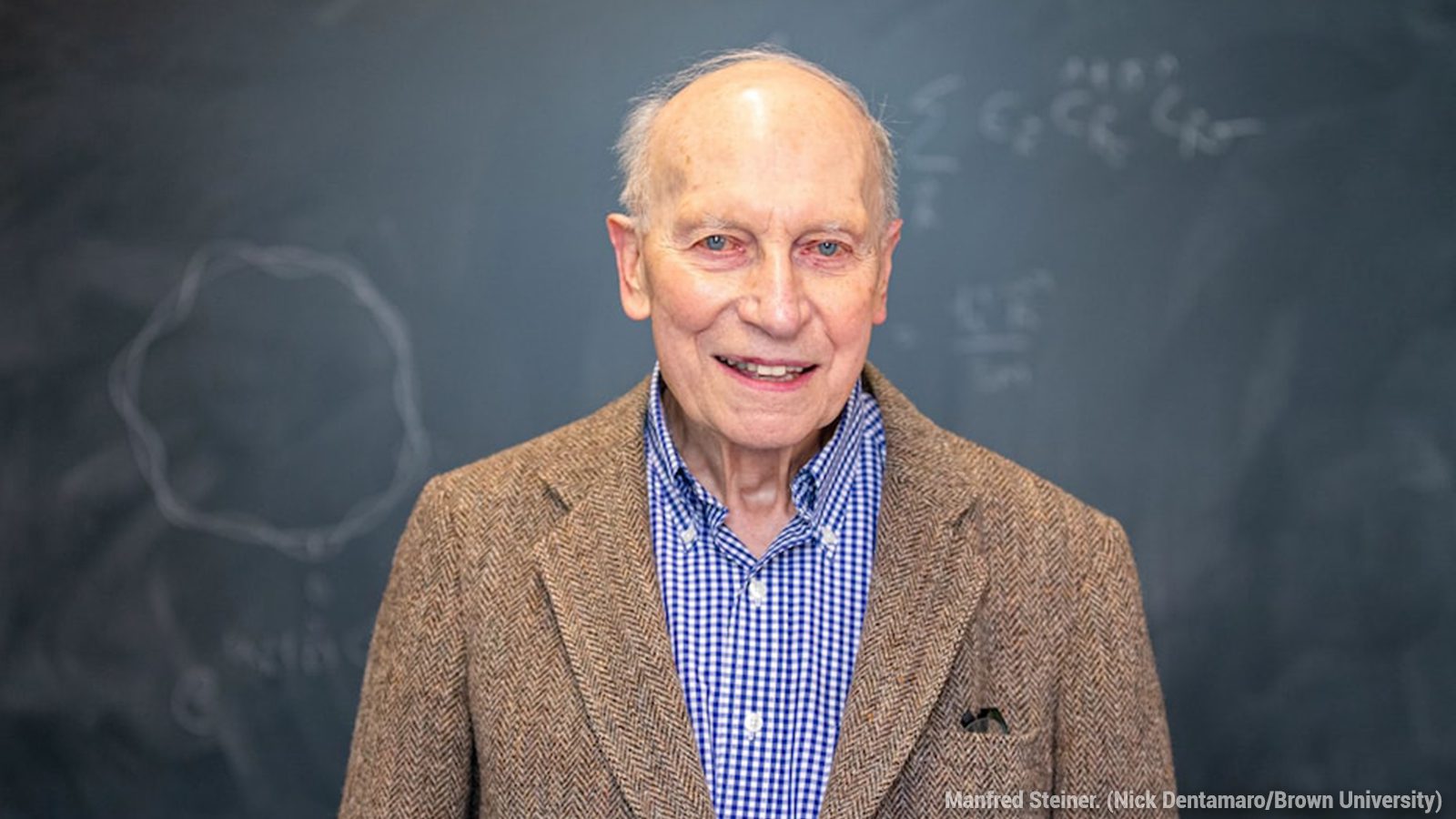In October 2021, 89-year-old Manfred Steiner achieved his lifelong dream of earning a Ph.D. in physics. He received his Ph.D. after completing his Brown University in Rhode Island dissertation. While he enjoyed a career in hematology, his dream of becoming a physicist remained one of his lifelong goals.
“It’s an old dream that starts in my childhood. I always wanted to become a physicist,” Steiner said. “I knew physics was my true passion by the time I graduated high school. But after the war, my uncle and my mother advised me to take up medicine because it would be a better choice in these turbulent after-war years.”
Steiner encountered many roadblocks on his path to earning a Ph.D. in physics but never gave up. He put his goals on hold until it became feasible to attend college again.
Also, fleeing his home country of Vienna after World War II impacted his career path. When he eventually arrived in the U.S., he listened to his family’s advice about pursuing a medical degree. He wanted to play it safe and have a stable job in those uncertain times.
Steiner Followed an Unconventional Path to Becoming a Physicist
“My uncle was a physician, an ear, nose, and throat specialist, and he had taught in the United States for a while,” Steiner said in a statement. “He taught plastic surgery — showing people how to make noses smaller or how to straighten them out. My family’s advice was that medicine was the best path for me. So I reconciled myself, ‘they are older and wiser,’ and I followed their advice.”
So, Steiner earned a medical doctorate in 1955 from the University of Vienna and set his sights on Washington D.C. after graduating. There, he completed his training courses in internal medicine.
Afterward, he began training in hematology at Tufts University under the esteemed. Dr. William Damashek. In addition, Steiner earned a Ph.D. in biochemistry at the Massachusetts Institute of Technology (MIT) in 1967.
Upon completing his rigorous schooling, Steiner moved to Rhode Island. He began working as a hematologist at Brown University (now the Warren Alpert Medical School).
In 1968, he became an assistant professor of medicine, mainly doing research work. He was appointed as a professor in 1978. In 1985, Steiner earned the title head of hematology at the medical school. He continued working there until 1994.
After nearly 30 years, Steiner felt ready to retire and enjoy his golden years. However, one of his colleagues approached him about creating a research program in hematology. He couldn’t turn down the offer and helped direct the program until 2000, when he finally retired from a long medical career.
89-Year-Old Earns Ph.D. in Physics, Proving Age is Just a Number
Throughout his years as a hematologist, he managed to keep his true goal alive, however. His love of physics never left him, so he attended classes despite his age.
“Physics was always a part of me,” he said, “and when I retired from medicine, and I was approaching age 70, I decided to enter the world of physics.”
So, Steiner enrolled in undergraduate physics classes at MIT, but found the commute to Boston too draining. Then, he transferred to Brown University, his old stomping grounds.
Teachers at the Brown Physics Department welcomed him with open arms and felt thrilled to have him in class. The students also treated him kindly and took an instant liking to him.
While Steiner thoroughly enjoyed the physics classes, he didn’t intend to earn a third doctoral degree. Initially, he just wanted to keep his mind sharp by taking a few classes. However, by the spring semester of 2007, he’d completed the necessary coursework to enroll in graduate school.
So, he thought, “Why stop now?” He earned a spot in the Ph.D. program and began searching for a dissertation mentor. Soon after, he came across condensed matter theorist Brad Marston, who assigned Steiner a detailed project on bosonization. While Marston initially hesitated to accept Steiner as his student, he quickly embraced the idea.
“To be honest, I was skeptical because people do not usually do physics, especially theoretical physics, at an advanced age,” Marston said. “But in a moment of weakness, I agreed and said ‘yes.’ I knew his story, and I was very sympathetic to his desire to fulfill his lifelong dream of becoming a physicist.”
After Successfully Defending His Thesis, Steiner Completed His Goal of a Physics Degree
Despite Steiner’s old age, Marston didn’t water down his Ph.D. dissertation topic. He gave him a challenging project about bosonization, a mathematical procedure involving various fundamental particles.
In the universe, two types of particles exist: fermions and bosons. They’re differentiated by a quantum property known as angular momentum or “spin.” Particles with half-integer spins are fermions such as quarks and electrons. Particles with whole integer spins are classified as bosons, such as photons and the Higgs boson.
However, in some instances, you can classify a fermion as a boson, known as bosonization. Usually, researchers approach this as a one-dimensional problem, but Marston and a former colleague also applied it to higher dimensions. They encountered obstacles in their experiments, so Marston passed the torch along to Steiner for his dissertation project.
The duo then worked on preparing Steiner’s dissertation for publication, and Steiner continued with his physics research. After earning his third doctoral degree, Steiner couldn’t have been happier with his accomplishments.
“I am really on top of the world,” Steiner said. “This Ph.D. is the one that I most cherish because it’s the one that I was striving for my whole life.”
Final Thoughts on 89-Year-Old Earning Ph.D. in Physics, Reaching a Lifelong Goal
When Manfred Steiner earned a Ph.D. in physics at 89 years old, he surprised everyone, including himself. However, his lifelong goal was to become a physicist, so he didn’t let age stop him. After working as a hematologist for over thirty years, he finally had time to pursue his true passion. So, Steiner enrolled in physics classes and eventually earned his Ph.D. almost twenty years later.
What a hardworking and inspiring man! We can all learn this valuable lesson from Steiner: if you follow your heart, it will never disappoint you.
















 Community
Community

